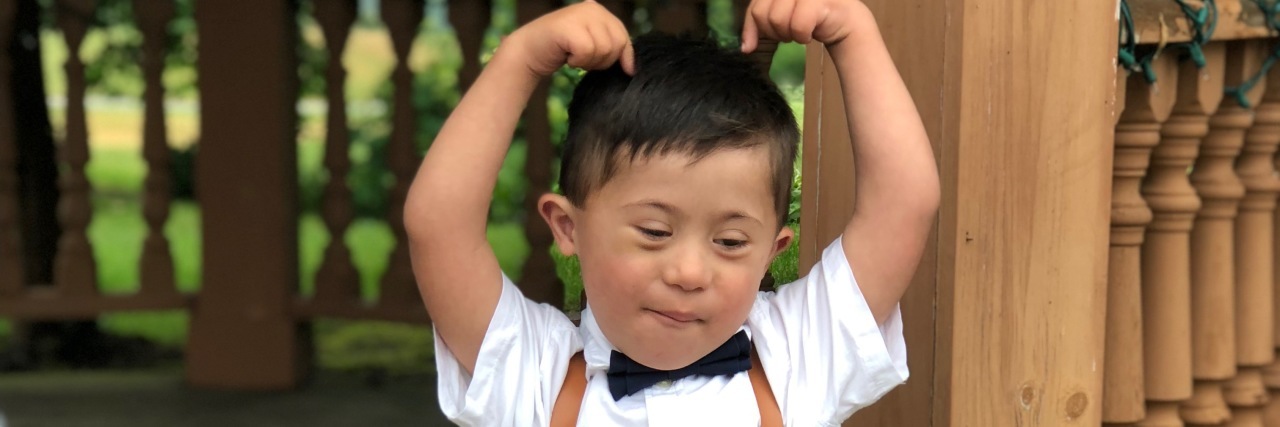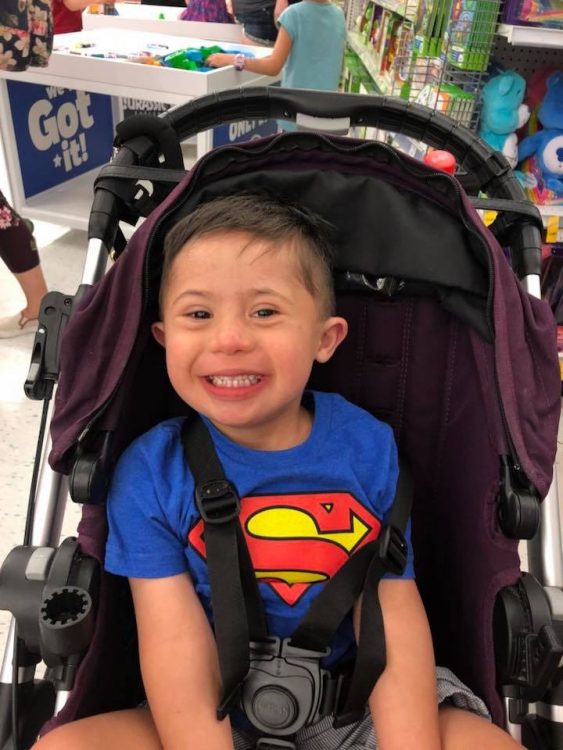After an almost three year struggle with infertility, a few failed IUI’s and many timed intercourse failures, my husband and I signed papers to start the IVF process. I was 32 years old at the time. The month of cycle monitoring prior to the retrieval is when it finally happened on its own and nine months later I gave birth to my perfectly normal, fine and healthy son with Down syndrome.
I highlight “perfectly normal and fine and healthy” for two reasons:
1. That is exactly what he is: perfect, normal, fine and healthy.
2. Those are the words I often hear people say when they talk about their prenatal testing results and their babies not having Down syndrome. Using these words basically imply that if their baby did have Down syndrome they wouldn’t be perfect, normal, fine or healthy. When people say this, I hear my child with Down syndrome doesn’t fit in the categories of “perfect,” “fine,” “normal” or “healthy” and that couldn’t be further from the truth!
People need to understand that words hurt! What differentiates your child and mine is one extra chromosome. That’s it! My son eats, drinks, plays, sings, dances, laughs, cries, sleeps, plays, fights with his sister and so much more, just like your child with 46 chromosomes does. Yet my son’s life is valued differently? How is that fair?
I hate that prenatal testing is often referred to as “the Down syndrome test.” I also hate that when a positive prenatal assessment for Down syndrome is given it is automatically followed with “options.” Why should a mother be asked if she wants to end her pregnancy when everyone knows the second you find out you are pregnant, termination is an option? Why do the medical professionals even need to bring it up? Why not let the parents come out and ask for it, if that is what they truly want? By providing them that option you are telling them off the bat the baby they are carrying is less than. Why not provide them with up to date and valid information, introduce them to a family who is walking that journey and have them answer any questions they may have on what life is like with Down syndrome?
I also hate that after 35 you are at “high risk” for having a baby with Down syndrome. As far as I am concerned, the only fear with the term “high risk” is death. I was 32. In fact, I know more people who had a child with Down syndrome under the age of 35 than over.
I am not opposed to prenatal testing as it can be lifesaving if your baby will be born with any medical complications upon birth and testing can help determine the right team that needs to be present during the birthing process to ensure a safe delivery.
I challenge you with this, please choose your words carefully, especially when you have a larger audience reading your responses on social media. You never know who is reading your responses and how you may hurt them. When someone asks questions on prenatal testing results, think about how you will answer.
I understand that finding out your baby could or will have Down syndrome when they are born can be scary. All unknowns are scary. But one thing I can promise you is this, you will be joining one of the most supportive clubs around. #theluckyfew


